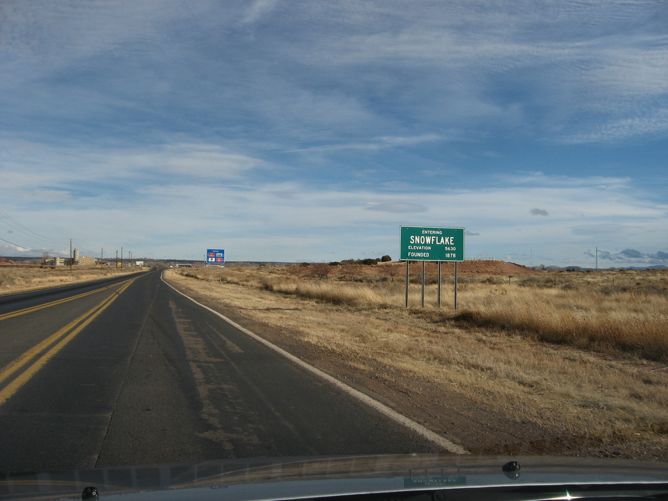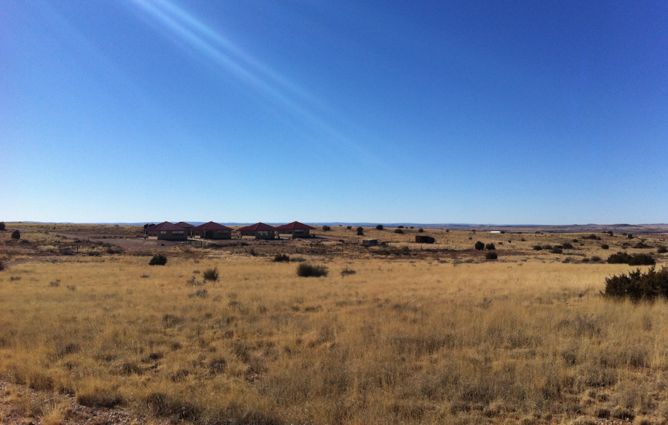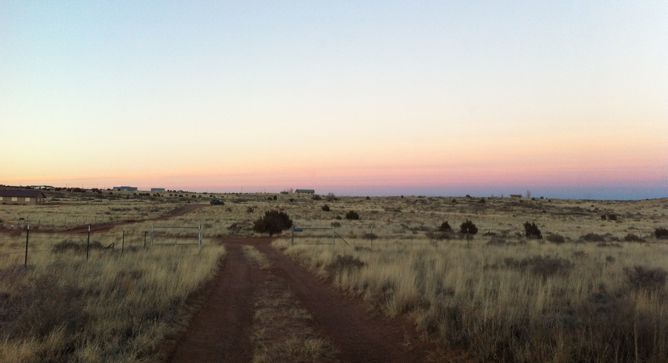How People With Extreme Sensitivities to Everyday Chemicals and Electricity Design Their Homes and Routines

Courtesy of Ken Lund/Flickr
Roman Mars’ podcast 99% Invisible covers design questions large and small, from his fascination with rebar to the history of slot machines to the great Los Angeles Red Car conspiracy. Here at the Eye, we cross-post new episodes and host excerpts from the 99% Invisible blog, which offers complementary visuals for each episode.
This week's edition—about designing communities for those with extreme sensitivities to low-level chemicals—can be played below. Or keep reading to learn more.
Well before the early 1500s, when Sir Thomas Moore first coined the term utopia, people have been thinking about how to design their ideal communities. Maybe it’s one that doesn’t use money, or one that drops traditional family structures and raises children collectively.
For a community of people on the outskirts of the small Arizona town of Snowflake, utopia is just a place where they won’t be physically sick. That’s because everyone in this community is suffering from multiple chemical sensitivity.
People with MCS suffer from migraines, muscle pain, rashes, nausea, fatigue, and other debilitating symptoms they believe to be caused by low-level exposure to chemicals such as laundry detergent, perfume, and car exhaust.
Although most scientific studies have not shown a strong connection between chemical exposure and symptoms, there’s no real medical consensus about what causes the illness. Doctors disagree about whether symptoms are physiological, psychological, or both.

Courtesy of Delaney Hall
People with MCS are often dismissed as hypochondriacs and can find themselves without sympathetic medical care or access to services that people with recognized disabilities might have. There are a subset of doctors who believe in MCS and treat it, but most mainstream physicians avoid the diagnosis. A lot of people with the illness take matters into their own hands, designing their diets, habits, and environments to make themselves feel better.
The people in this Arizona community might be the closest thing there is to an MCS think tank, and they’ve developed building techniques to help manage their sensitivities. That means using “safe” materials like ceramic tiles or concrete floors rather than carpeting, which traps chemical odors. Many leave their windows wide open, even in the winter, to keep air flowing through their houses. People with MCS also experience sensitivity to electricity, so some houses forgo electricity or have it routed through a single room that can be completely shut off from the rest of the house.
There are about three dozen households in the Snowflake community, but the waiting list is long. Susan Molloy, who keeps track of the housing, gets calls every week from “runners,” who are moving from place to place, looking for somewhere that won’t aggravate their sensitivities.

Courtesy of Delaney Hall
Snowflake isn’t the only community of its kind, but it’s one of the largest and most established. Some local businesses in the larger town of Snowflake have even begun to adapt to the MCS community, at least a little bit. Sierra Dental has tailored its practice to make it friendly to MCS patients. There’s a real estate agent who helps people find MCS-friendly properties. There’s also an organic food store where the owner will shop for people with MCS and leave the groceries outside for them to pick up, so they don’t have to come into the store, which smells like incense.
This MCS utopia could fall apart at any moment, and Susan Molloy is keenly aware of this. “All it takes is one family building a gas station out there on the road, and a lot of us would have to move.”
To learn more, check out the 99% Invisible post or listen to the show.
99% Invisible is distributed by PRX.
